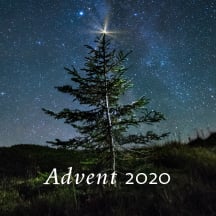
Make sure to read today’s readings.
In Isaiah, the God of Israel sets a feast for his people on this mountain that satisfies all peoples. God’s ongoing faithfulness to his chosen people blesses the diversity of peoples. Within our diversity, however, we are the same in our need before God. In Matthew, “the crowd” represents this. When Jesus sees the hungry crowd, pity and compassion move him. Where there is not enough bread, he multiplies it until there are basketfuls of abundance.
Today there are many crowds of dire need, huddled masses, people clamoring for food, shelter and dignity. We should not imagine ourselves as Jesus, in which case I would encourage you to dispense charity rightly and generously. As if you and your possessions were your own and yours to do with what you will, quite capriciously, and not gifts from God for the good of all people. No, we should imagine ourselves among the crowd, side-by-side with all others, equally in need of Jesus’s bread.[1] That’s both metaphor and calling. As a metaphor, the ultimate sacrificial offering of bread is, of course, Jesus’s body, partaking of which in the Eucharist we are incorporated in Christ. As a calling, imagining ourselves among the crowd is seeing ourselves rightly before God with all others—and acting accordingly.
If we do not imagine ourselves among the crowd, then we imagine ourselves without need of Jesus. We then attempt to separate ourselves from others through means of material, financial, social, militaristic and geographical accumulation at others’ expense.[2] In fact, however, we are, with all others, in a constant state of material and spiritual need. The goal is not to remove our need; that is blasphemy, hubris and idolatry (not to mention impossible). The challenge is to end the actual and perceived divisions in and separations from “the crowd.” We must put away wealth, comfort and safety as they become false apparatuses of separation and oppression by which we attempt to remove ourselves from “the crowd.” Inequality and destructive lifestyles of such astronomical proportions as exists in our world is an affront to God who gives to all out of an abundance of grace.[3] In short, we are called to solidarity with one another.
In these pandemic times, many await a return to “normal.”[4] During Advent, however, we are reminded that we await the coming of Christ, which is not a return to anything. We await a new creation, God’s will on earth as it is in heaven. Let us recognize ourselves among the crowd. God has prepared a feast on his holy mountain. All may eat and be satisfied—there will be an abundance remaining. Will we sit on the mountaintop among the crowd, hungry, waiting on the hand of the Lord to provide the feast?
[1] My professor at Yale Divinity School, Dr. Willie Jennings, speaks powerfully about this idea of “the crowd.” I highly recommend him to you.
[2] The prophets speak directly against these things constantly. Read, e.g., Leviticus 19:9-18; 1 Samuel 8:7-21; Jeremiah 6:13-15, 7:5-7, 9:22-24; Isaiah 2:5-8, 5:8, 10:1-4, 58:6-9; Amos 8:1-10; Micah 2:1-2; Zechariah 7:9-10.
[3] Catholic social teaching declares severe inequality a great sin and violation of human dignity. See Gaudium et Spes §26-7, 42-3, 69, 71; Rerum Novarum §22; Quadragesimo Anno §60-1; Centesimus Annus §30; Sollicitudo Rei Socialis §42-3; Laudato Si §48-52, 82-3, 89-95; Fratelli Tutti, §116.
[4] Cardinal Tagle spoke passionately against this in his brunch with STM on November 15, 2020.



